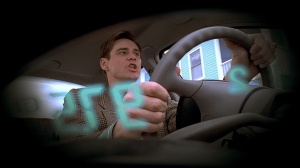“I am what I accomplish and how well I accomplish it.”
^ This, my friends, is called perfectionism, and I’m sure this is not to anyone’s surprise, but I am 100% fully & wholly a perfectionist. This is something I’ve joked about for a long time, and when people mention it, I just kinda brush it off. However, currently I am reading The Gifts of Imperfection by Brené Brown, courtesy of my lovely sister, Emily.
Here is what I have learned so far:
I’m not the only one.
I’m not writing this because I want attention or because I want people to ask me about it. In fact, it took a lot of contemplation and convincing myself to do it. I’m saying this for those who are afraid to do so. And trust me, I still am. What I have learned so far is that shame and perfectionism go hand in hand, much to my surprise. And shame is a lot harder to admit than perfectionism. At least perfectionism sounds like I’m successful. But that’s just it. It’s about how everyone else perceives me. Shame is a huge thing to admit. And it’s a daily struggle. It doesn’t end here. It’s a process every day.
It’s meeting up with some new friends with the one goal being for them to like you. It’s messing up and not telling a soul. It’s not being yourself, but being the person you think everyone else wants you to be. Doing what you have to in order to be liked, wanted, or accepted.
“Perfectionism is not striving to be your best.”
It’s not striving to be your best. It’s striving to present yourself as the best, according to other peoples’ standards. Perfectionism is not healthy. I don’t even know what a life without perfectionism feels like. What does it feel like to wake up in the morning and not feel the pressure of completing every single task on your “way too long” todo list? What does it feel like to not alter your personality, your jokes, your loud laugh depending on who you are around? What does it feel like to not compare yourself to every single person you encounter and always see yourself as lesser than and feeling like you aren’t doing enough?
This past week, I couldn’t go into work one day because I was sick, and let me tell you, that was one of the worst days I’ve had in a long time. Not because I was sick, but because I wasn’t accomplishing anything. I was letting people down. Normally, people will embrace a day without tasks to complete, but that is my personal hell. Nothing to do??? How on earth will I feel complete? It’s a different world of anxiety that you only know if you experience it.
“Perfectionism is the belief that if we live perfect, look perfect, and act perfect, we can minimize or avoid the pain of blame, judgment, and shame.”
Spoiler alert: This never works out in the end. It suffocates us, our friends, our families, and our relationships. I’ve had very few true friendships because I have always put on the perfection front, which gives off the impression that I view myself as perfect. You could not be further from wrong. That front from perfectionists is often because we simply do view ourselves as imperfect, not worthy of friendship, love, or attention. Because I have consistently put on that front, very few people truly know me
Perfectionism is like this shield that weighs 10 freakin tons. We carry it around thinking that it’s going to protect us, but it’s exactly the thing that is holding us back: from relationships, from being our true selves, from letting go of shame.
Perfectionism heightens the feelings of shame, judgment, and blame. When we embrace these imperfections and let others see them, we find courage. We find compassion. And we find connection. We find these gifts in ourselves, and we find them in others.













